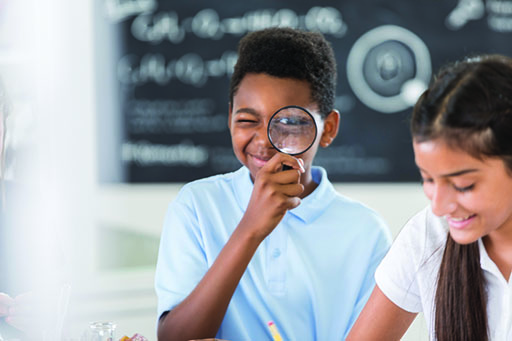1.2 Cross-curricular case study
Cross-curricular teaching means children are not learning subjects in isolation. When children see meaningful connections between subjects, they become skilled in applying their learning to different problems and situations, and they have a more holistic experience of learning.
Activity 2 Playful learning
Read the account by Deborah Whitehouse, a primary school teaching assistant, about a cross-curricular project in her school. As you read, try to identify the subjects children are learning.
We had a ‘forensic morning’ in our school, a brilliant cross-curricular morning devised by one of our youngest and more creative teachers. The local community police sent three of their officers along for the morning and 90 children (the whole school) had to solve a crime. We roped in a willing parent to don balaclava and swag bag, who proceeded to ‘nick’ a laptop and make a getaway through the playground, dropping clues as she did. The children then spilt into groups and dusted for fingerprints and took casts of footprints and proceeded to eliminate suspects using clever detecting. They produced wanted posters, collected evidence in evidence bags, putting on protective gear in true CSI fashion.
They made their own police notebooks and kept detailed timings and records of evidence found. One child who struggles with handwriting was overheard to say ‘we have to be neat, we can’t use the evidence in court if it isn’t neat writing’. At this moment, I saw this child make the link between what he was learning in school and the ‘real’ world. He saw the point of it all. That’s what a creative curriculum does, makes learning meaningful.
In the make-believe ‘forensic’ activities, children are learning a number of things: some are related to academic subjects, and others are about skills and dispositions (you read about dispositions for learning in Session 3).
Jot down your ideas about the subjects children are learning, and then check your ideas.
Discussion
- Police notebooks: literacy and language development
- Wanted posters: art and design
- Recording timings: mathematics
- Dusting for fingerprints and making casts: science and technology
- Finding clues: evaluating information
- Sharing ideas: collaborative working
- Eliminating suspects: inference and deduction

